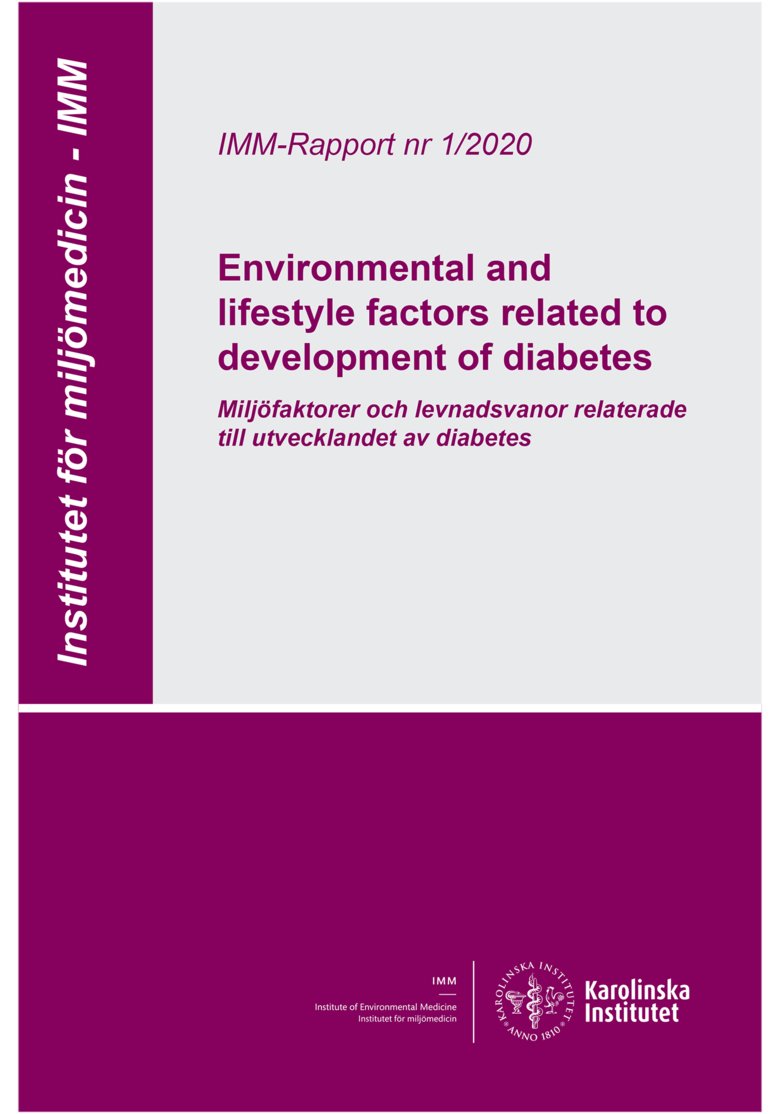New report: Environmental and lifestyle factors related to development of diabetes

Knowledge about the influence of lifestyle and environmental factors on diabetes risk is important as these factors are potentially modifiable and may be targeted in the prevention of diabetes.

Diabetes is a very common disease and the prevalence is increasing in Sweden as well as globally.
This report summarizes existing research on the relationship between lifestyle, environmental factors and the risk of diabetes. The report is prompted by an increased interest in the possible importance of environmental factors in the development of diabetes. Our emphasis is on type 2 diabetes, which is the most common form of diabetes, and the diabetes type most extensively researched. In addition, the more limited research on the influence of lifestyle and the environment for development of autoimmune forms of diabetes, such as type 1 diabetes and LADA (latent autoimmune diabetes in adults), is discussed. Lifestyle factors covered by the report include obesity, physical activity, tobacco use and dietary habits and among environmental factors we have included environmental chemicals, metals, noise, air pollution, and green environments. In addition, infections are discussed in relation to autoimmune diabetes.
The aim of the report is to summarize current knowledge in the area and to point at knowledge gaps and further research needs.
The report is authored by researchers active at IMM in the areas of lifestyle, environmental factors, and diabetes.
Links to the report
Environmental and lifestyle factors related to development of diabetes (PDF)
